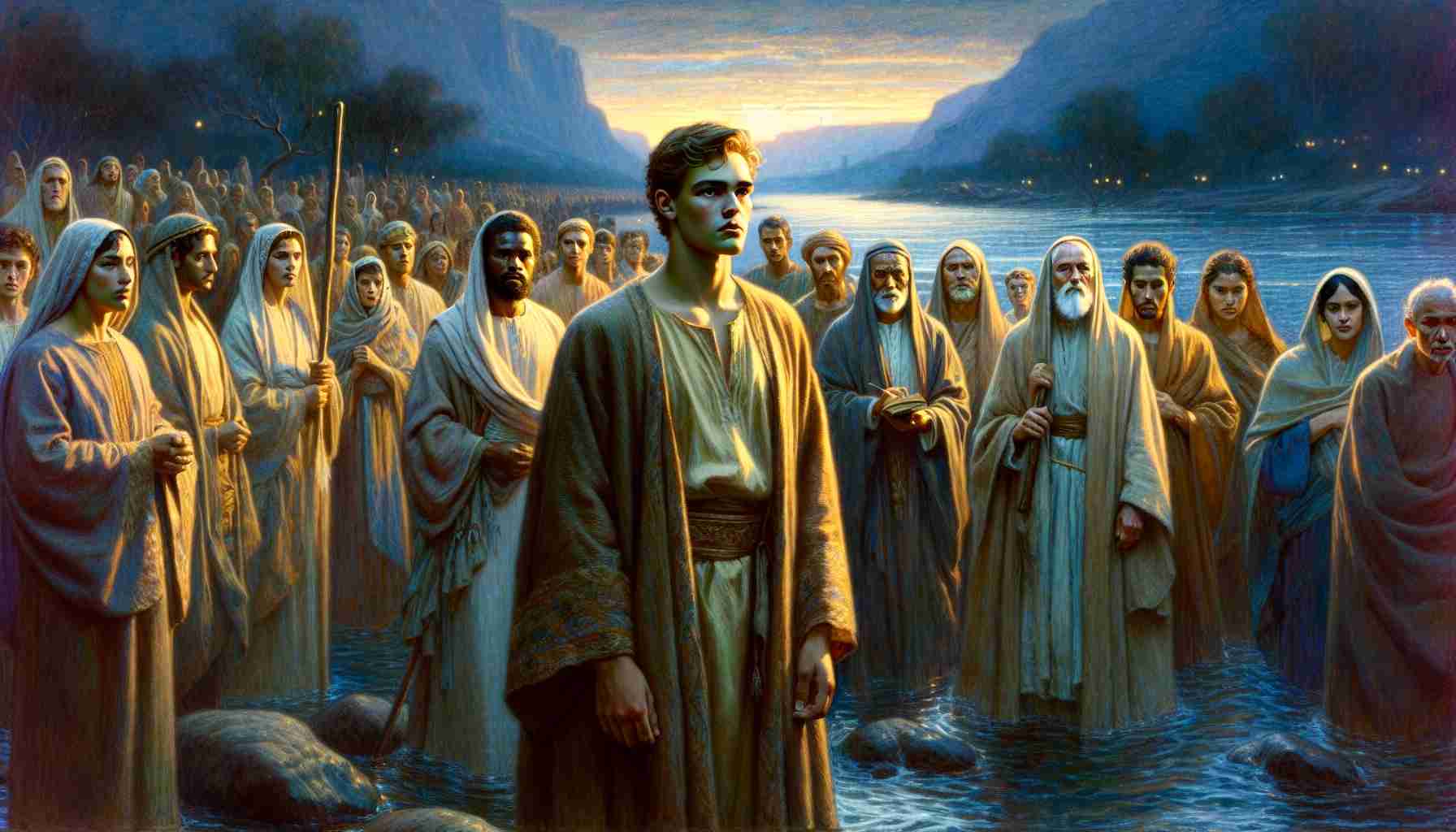

My hands still trembled from digging. I was a young man then, strong from years in the wilderness, but my strength did little to prepare me for the task of burying a prophet.
They say you won't find the grave of Moses. That's true. I know—it was my hands that laid him down, and even I couldn’t tell you where he rests. The mountain took him, and God kept him hidden.
I served under Joshua, our new leader. The mantle had passed, just as God had said. But before Joshua led us across the Jordan, we went up Mount Nebo—just two of us. Moses didn’t allow anyone else. Not even Aaron’s sons. Just me.
Moses stood there, high above the land, his eyes sweeping across the horizon. He could see everything—Jericho, the Jordan River, the hills of Judah. It was all there, just as God had promised. It wasn’t the first time we stood together in silence, but it was the heaviest.
He turned to me, his face calm but distant. “You will take them in,” he said, voice soft. “I will stay here.”
I wanted to cry out. He had led us for forty years—from slavery in Egypt, through the sea, through battles, through hunger and fear. He had spoken to God! Received the Ten Commandments with his own hands! And yet, he would not cross into the land.
“Why?” I asked, though I already knew the answer. Because he had struck the rock when God told him to speak. Because even the greatest prophet was still human.
There was no anger in him. Only peace... and something deeper—trust. He didn’t fight it. He simply removed his cloak, handed me his staff, and looked out again.
“The Lord is your leader now,” he whispered, almost as if to himself.
He laid down under a tree, his body worn from years of walking with God and leading a stiff-necked people. And then, the mountain grew still. No wind, no birds. It was as if the earth held its breath. When he closed his eyes... he didn’t open them again.
I sat there for hours. Maybe more. The sun had started to fall behind the cliffs when I finally brought myself to dig. The ground was firm, but I worked silently. No grave marker, no sign. Just earth over a servant of God.
And when it was done, I stood. Not as a follower, but as a leader.
Later, in his last address, Joshua reminded the tribes of everything that had come before—that it was God who had fought for us, who had promised the land. But in that moment on the mountain, I learned something deeper: that the greatest leaders are not those who reach the end, but those who prepare others to keep going.
Moses didn’t need to enter the land to fulfill his purpose.
He just needed to trust that we would walk in.
My hands still trembled from digging. I was a young man then, strong from years in the wilderness, but my strength did little to prepare me for the task of burying a prophet.
They say you won't find the grave of Moses. That's true. I know—it was my hands that laid him down, and even I couldn’t tell you where he rests. The mountain took him, and God kept him hidden.
I served under Joshua, our new leader. The mantle had passed, just as God had said. But before Joshua led us across the Jordan, we went up Mount Nebo—just two of us. Moses didn’t allow anyone else. Not even Aaron’s sons. Just me.
Moses stood there, high above the land, his eyes sweeping across the horizon. He could see everything—Jericho, the Jordan River, the hills of Judah. It was all there, just as God had promised. It wasn’t the first time we stood together in silence, but it was the heaviest.
He turned to me, his face calm but distant. “You will take them in,” he said, voice soft. “I will stay here.”
I wanted to cry out. He had led us for forty years—from slavery in Egypt, through the sea, through battles, through hunger and fear. He had spoken to God! Received the Ten Commandments with his own hands! And yet, he would not cross into the land.
“Why?” I asked, though I already knew the answer. Because he had struck the rock when God told him to speak. Because even the greatest prophet was still human.
There was no anger in him. Only peace... and something deeper—trust. He didn’t fight it. He simply removed his cloak, handed me his staff, and looked out again.
“The Lord is your leader now,” he whispered, almost as if to himself.
He laid down under a tree, his body worn from years of walking with God and leading a stiff-necked people. And then, the mountain grew still. No wind, no birds. It was as if the earth held its breath. When he closed his eyes... he didn’t open them again.
I sat there for hours. Maybe more. The sun had started to fall behind the cliffs when I finally brought myself to dig. The ground was firm, but I worked silently. No grave marker, no sign. Just earth over a servant of God.
And when it was done, I stood. Not as a follower, but as a leader.
Later, in his last address, Joshua reminded the tribes of everything that had come before—that it was God who had fought for us, who had promised the land. But in that moment on the mountain, I learned something deeper: that the greatest leaders are not those who reach the end, but those who prepare others to keep going.
Moses didn’t need to enter the land to fulfill his purpose.
He just needed to trust that we would walk in.